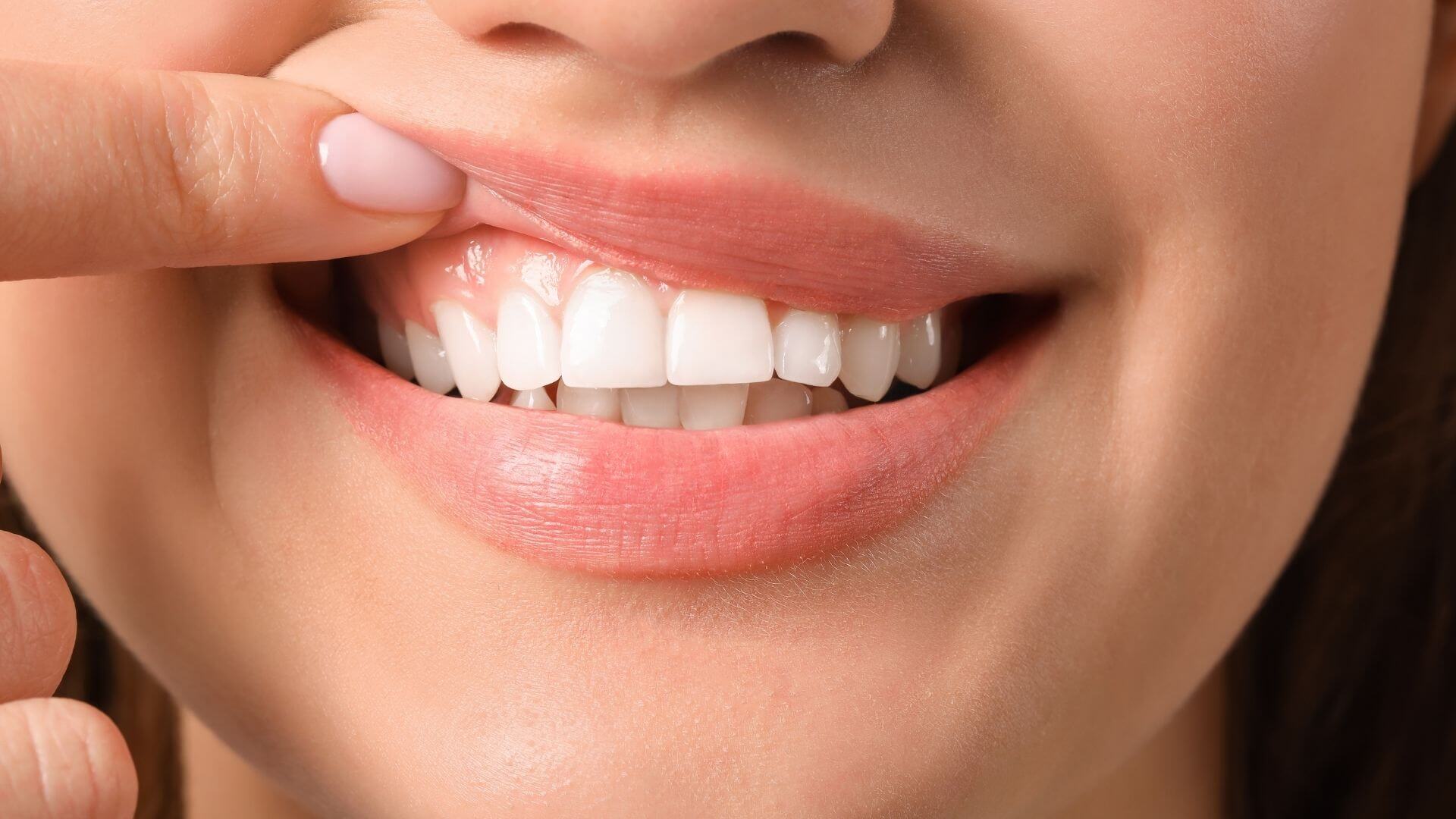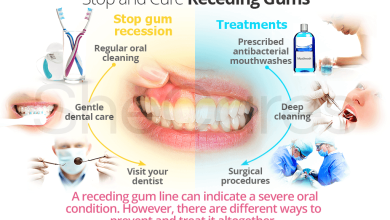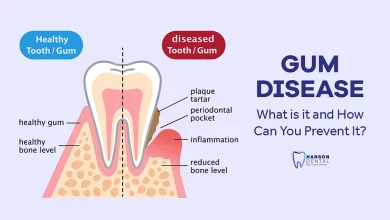Do Gums Grow Back After Dental Implant?

Gums do not naturally grow back after a dental implant. Dental implants are a popular and effective solution for replacing missing teeth.
However, many people wonder if the surrounding gums will regenerate and grow back after the implant procedure. Unfortunately, the answer is no. While the implant itself fuses with the jawbone to provide a stable foundation for a prosthetic tooth, the gum tissue does not have the ability to regenerate.
This means that once the gums have receded or been lost due to factors like gum disease or tooth loss, they cannot naturally grow back. Nevertheless, proper oral hygiene and regular dental visits can help maintain the health and appearance of the gums around the implant, preventing further gum recession and ensuring the longevity of the implant.
Importance Of Gum Health For Dental Implants
Proper gum health is essential for the success of dental implants. Healthy gums provide a strong foundation for the implant to anchor into the jawbone, ensuring stability and longevity. Research has shown a strong correlation between gum health and implant success. Poor gum health can have significant implications on implant outcomes. When gums are infected or inflamed, the risk of implant failure increases due to the potential for bone loss and decreased stability. It is crucial to maintain good oral hygiene practices, including regular brushing, flossing, and dental check-ups to prevent gum disease. Pre-implant assessments are necessary to ensure that any existing gum issues are resolved before the implant procedure. Close monitoring of gum health after implant placement is also crucial to identify and address any issues promptly. Working closely with your dental professional and following their recommendations will help ensure the best possible outcomes for your dental implant.
Gum Tissue Healing Process After Dental Implant Surgery
After undergoing a dental implant surgery, it is natural to wonder about the healing process of your gum tissue. Immediately after the surgery, you may experience swelling, tenderness, and bruising in the gum area. During the initial healing stage, a blood clot forms over the surgical site to protect it and facilitate the healing process. This clot serves as a foundation for the growth of new gum tissue.
In the secondary healing stage, granulation tissue begins to develop, aiding in the formation of new gum tissue. This tissue contains blood vessels and helps to protect the area from possible infections. Over time, the maturation of gum tissue occurs, where new blood vessels and collagen fibers are formed, resulting in stronger and healthier gum tissue.
Factors Influencing Gum Regrowth After Dental Implant
htmlFactors Influencing Gum Regrowth After Dental Implant:
1. Type of implant placement: Immediate or delayed – The timing of implant placement can affect gum regrowth. Immediate placement may result in less gum recession compared to delayed placement.
2. Gum recession extent and severity: The degree of gum recession before the implant procedure can influence whether the gums will grow back fully or partially.
3. Patient’s oral hygiene habits and maintenance: Regular brushing, flossing, and professional dental cleanings are crucial for maintaining healthy gums and supporting gum regrowth after an implant.
4. Bone loss and stability of the implant: Adequate bone support and proper integration of the implant can contribute to successful gum regrowth.
5. Presence of gum disease or infections: Existing gum diseases or infections can hinder gum regrowth and may require additional treatment before implant placement.
6. Influence of systemic conditions on gum health: Certain systemic conditions, such as diabetes or immune disorders, may affect gum regrowth and overall oral health.
Techniques And Approaches To Stimulate Gum Regrowth
There are several techniques and approaches available to stimulate gum regrowth after a dental implant. One such method is soft tissue grafting, which involves gum graft surgeries and techniques. This procedure helps to cover and protect the exposed roots of the teeth, promoting the growth of new gum tissue.
Another approach is guided tissue regeneration, which utilizes barriers to promote gum tissue regrowth. By using these barriers, the gums are protected from the invasion of undesirable tissues, allowing the gum tissues to regenerate and grow.
Platelet-rich plasma therapy is another option to enhance gum regrowth. This therapy utilizes growth factors found in the patient’s own blood to stimulate the healing process and promote the regrowth of gum tissue.
Laser-assisted gum regrowth procedures are also available. These procedures utilize laser technology to remove diseased gum tissue and stimulate the regrowth of healthy gum tissue.
Importance Of Maintaining Good Oral Hygiene
htmlDo Gums Grow Back After Dental Implant?
Regular brushing and flossing techniques, along with gentle care for the implanted area, using appropriate dental cleaning aids and solutions are vital for ensuring the longevity of your dental implant. Consistency in maintaining oral hygiene habits is key to preventing gum recession and subsequent gum regrowth. Regular professional cleanings and check-ups also support overall oral health and can help detect any potential issues early on.
| Oral Hygiene Tips: |
|---|
| Brush your teeth at least twice a day with a soft-bristle toothbrush, emphasizing the implanted area and surrounding gums. |
| Use dental floss or interdental brushes to clean in-between teeth, including the dental implant. |
| Adopt a gentle approach when cleaning the implanted area to avoid causing damage to the gums. |
| Consider using an antibacterial mouthwash to further reduce the risk of infection. |
By following these oral hygiene practices and by regularly consulting your dentist, you can improve the chances of gum health and the overall success of your dental implant.
Lifestyle Practices To Promote Gum Health
It is common for gums to recede after a dental implant, but do gums grow back? While gums cannot regrow on their own, there are several lifestyle practices that can promote gum health. Avoiding tobacco and quitting smoking is crucial as smoking can hinder gum tissue healing. A balanced diet and nutrition play a significant role in maintaining healthy gums. Eating foods rich in vitamin C, calcium, and omega-3 fatty acids can aid in gum tissue health. Managing stress levels is important as stress can weaken the immune system, making gums more susceptible to infections. Regular exercise not only benefits overall health, but it also improves blood circulation, which is essential for healthy gum tissue.
Post-implant Maintenance Guidelines
Post-Implant Maintenance Guidelines
After undergoing a dental implant procedure, it is crucial to follow the proper oral hygiene instructions to ensure that your gums remain healthy and prevent any complications.
Frequency of follow-up visits and check-ups: Regular visits to your dentist are essential to ensure the successful healing of your implant and monitor the overall health of your gums. Your dentist will recommend the suitable frequency of follow-up visits based on your specific situation.
Non-surgical treatments for gum disease prevention: In addition to regular dental check-ups, maintaining good oral hygiene practices is essential. This includes brushing twice a day with a soft-bristle toothbrush, flossing daily, and using an antibacterial mouthwash. Additionally, professional cleanings can help prevent gum disease and keep your gums and implant in excellent condition.
Proper implant care and maintenance instructions: It is important to follow your dentist’s instructions for cleaning and caring for your implant. This may include using special brushes or floss designed for implants, using an antimicrobial rinse, and avoiding certain foods that may cause damage to the implant area.

Credit: www.myidealdental.com
Frequently Asked Questions For Do Gums Grow Back After Dental Implant?
How Long Does It Take For Gums To Grow Back After Implant?
Gums typically take about 2-3 months to grow back after a dental implant. However, the exact time can vary depending on individual healing and the complexity of the procedure. It is best to consult with your dentist for a more accurate timeframe.
What Happens To Gums After Implants?
After getting implants, the gums go through a healing process. They may initially be inflamed and sensitive, but improve with time. The implants integrate with the bone, and the gums adapt around them, providing stability and support. Proper oral hygiene is crucial for maintaining healthy gums around implants.
Why Do My Gums Pull Away From My Dental Implants?
Gums may pull away from dental implants due to gum disease or poor oral hygiene. Inflammation and infection can cause the gums to recede, exposing the implant. Regular dental cleanings and proper oral care can help prevent this issue.
Will My Gum Grow Over My Implant Crown?
No, your gum will not grow over your implant crown. Implants are designed to look and feel like natural teeth, and the gum tissue should remain stable and healthy around the crown.
Conclusion
To sum up, the natural growth of gums after a dental implant procedure can vary from person to person. While some individuals may experience gum recession, others may witness partial or complete regrowth of the gums. It is crucial to maintain good oral hygiene, follow post-operative instructions, and regularly visit your dentist to maximize the chances of gum regrowth.
Remember, each case is unique, so consulting with a dental professional is essential for accurate diagnosis and recommendations.





